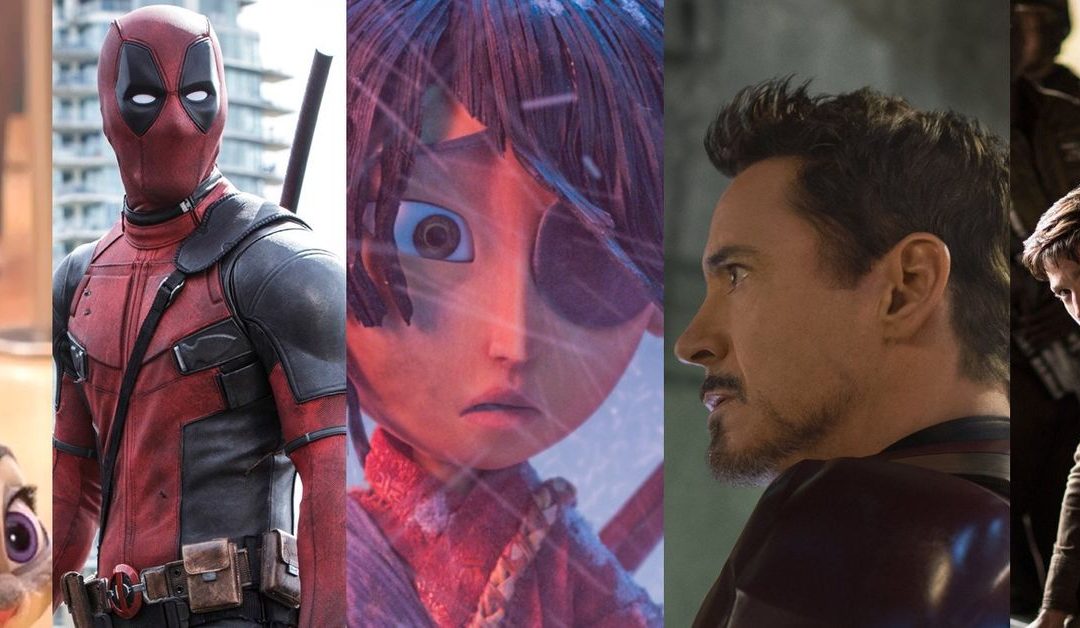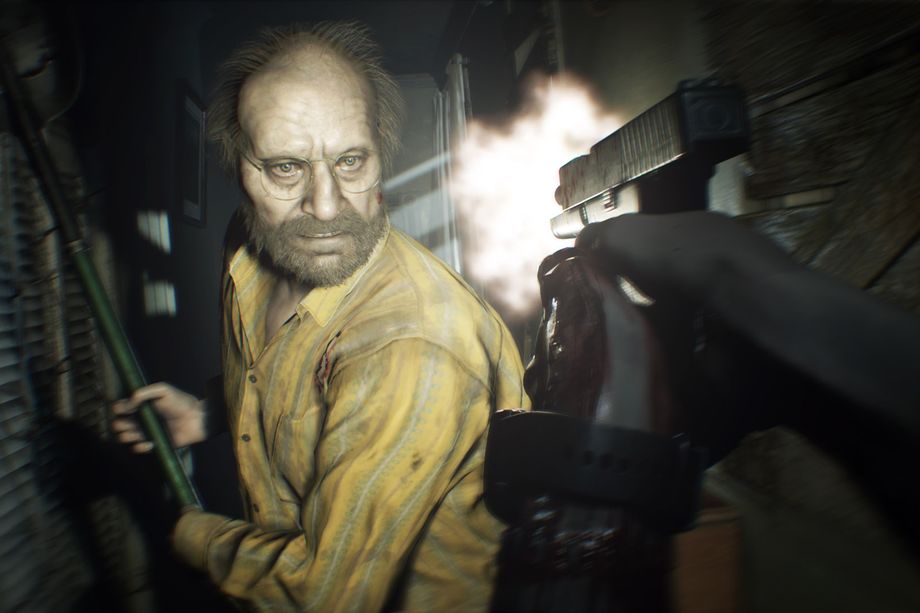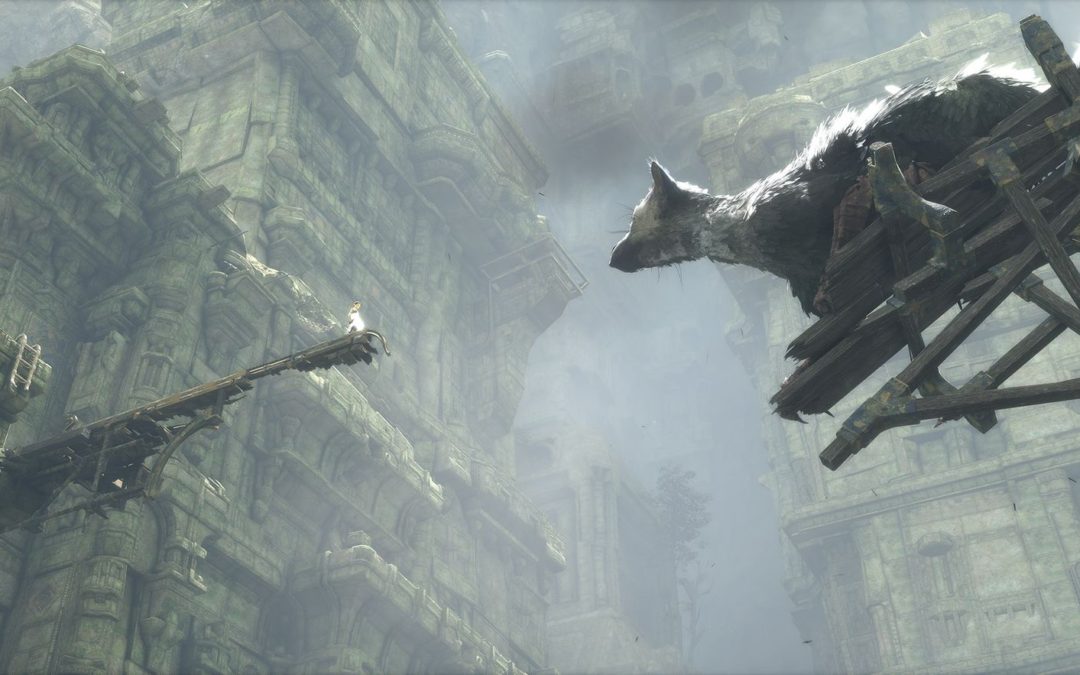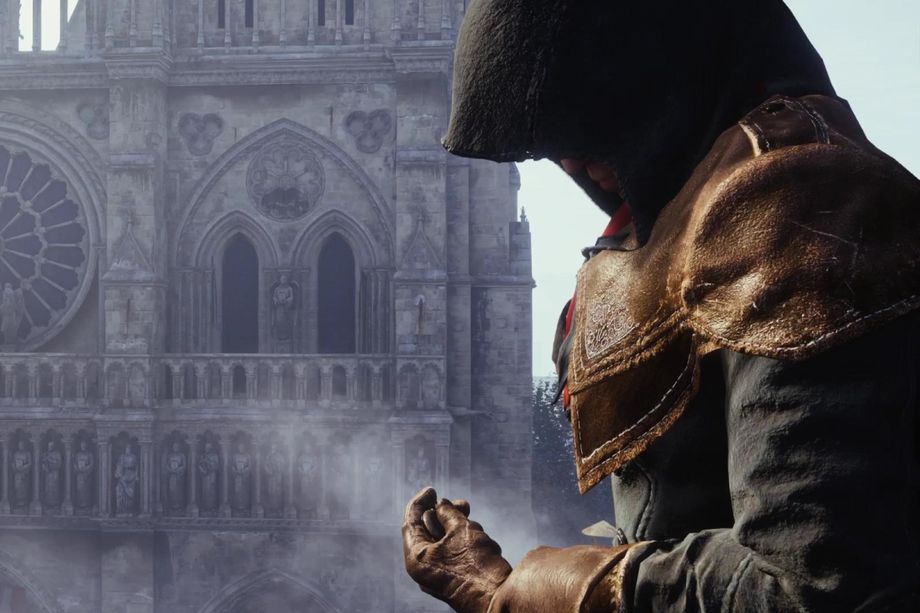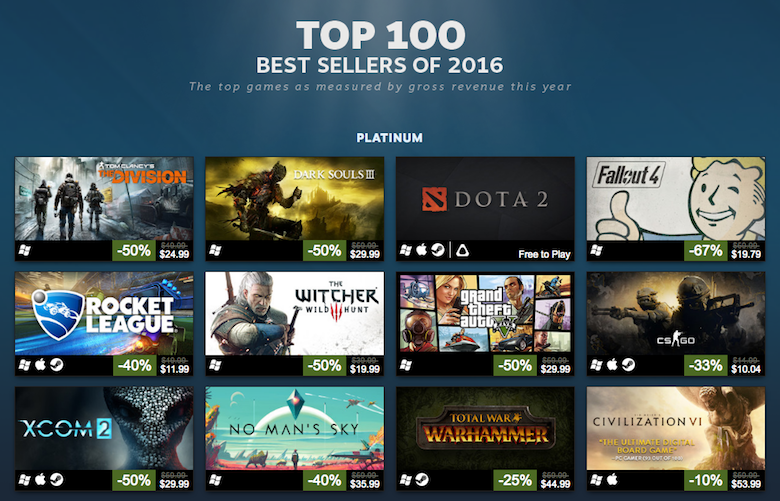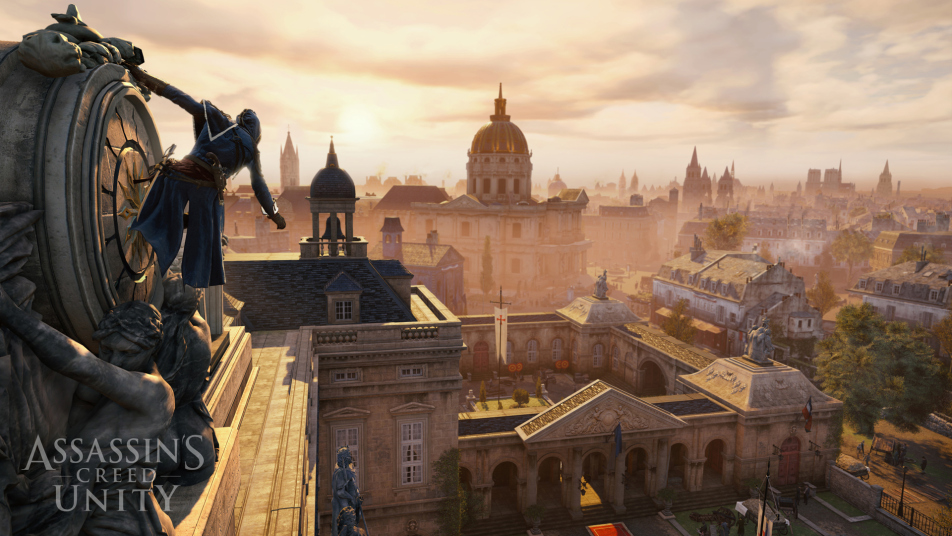2016 was a great year for movies.
This trend started with Deadpool, a film that surpassed all of our expectations. In our review, Susana Polo said the film’s “action sequences have a palpable rhythm that gives them great clarity, its good guys are genuinely lovable and its comedy is predominantly on point.” Deadpool feels unique — a stand-out title in genre overflowing with mediocrity.
Deadpool was a refreshing change of pace and, based on the two major Golden Globe nominations the film received, we’re not the only ones who thought so.
It felt like there was a great movie being released every week as the year went on. The surprising sequel to Cloverfield, 10 Cloverfield Lane, featured strong performances from John Goodman, John Gallagher Jr. and Elizabeth Winstead and subverted expectations. In April and May, films like The Jungle Book, Captain America: Civil War and Keanu made a big impact on Polygon.
Finding Dory, Popstar: Never Stop Never Stopping, Ghostbusters, Pete’s Dragon and Kubo and the Two Strings managed to get us through the sweltering summer months. Kubo and the Two Strings, in particular, seemed to come out of nowhere. Produced by Laika Entertainment, the same company behind ParaNorman and Coraline, Kubo and the Two Strings follows a young boy with magical abilities who must stop a gaggle of evil ghosts from destroying his village. Like other projects from Laika, the film focuses on a feeling of isolation, acceptance and family.
There was a glut of blockbusters in the second half of the year, including Rogue One: A Star Wars Story, Doctor Strange and Fantastic Beasts and Where to Find Them. That doesn’t mean there weren’t a number of sensational independent films also being released, though. Manchester by the Sea, The Edge of Seventeen, and Moonlight crept up on us.
A few of Polygon’s biggest cinephiles came together to talk about the films they considered the best of 2016. This year we’ve listed our top five movies as a collective group, followed by one honorable mention from each Polygon staffer involved in the voting process.
Without further ado, here are Polygon’s best movies of 2016.
Zootopia
Zootopia is a perfect example of what sets apart Disney from most other studios. Wrapped inside the story of a young bunny who’s determined to achieve her dream of becoming a police officer is a tale of racism, prejudice and fear.
Zootopia follows Judy (Ginnifer Goodwin), a small rabbit from a rural area who moves to the metropolitan city of Zootopia after graduating from the police academy. Although she’s the first rabbit to ever be accepted onto the force, she’s treated as a novelty by her fellow officers and forced to work low-level jobs. It’s not until she decides to take matters into her own hands and help an otter track down her missing husband that she discovers the evils lying within the city.
The story escalates when Judy discovers that the city wants to jail all predator-type animals, including her new fox friend, Nick (Jason Bateman). This is where the film finds its voice and powers through a haunting message about the way we treat people who we consider dangerous. It’s a crucial lesson and, considering the events that have occurred in the past couple of years, one that we’re glad to see handled as well as it was in Zootopia.
The film is also a treasure trove of comedy. The jokes arrive continuously and never lose their zing, even when the film takes on a more serious tone. The voice acting cast is likewise spectacular, with Bateman’s apathetic Nick turning in what’s likely the best performance.

Captain America: Civil War
Captain America: Civil War feels like the movie Marvel fans have been waiting for more so than any other, including The Avengers. Based on the seven-issue limited series released between 2006 and 2007, Civil War detailed the divide of the Avengers. The movie has everything we’re looking for in a Marvel feature, including long, well-choreographed battles and banter between the characters. More importantly, it set the tone for the future of the cinematic universe.
Like Rogue One, which we’ll get to in a bit, the reason that we love Civil War as much as we do is because it acts like a war film, focusing on a divide between characters we already care about. The world is never really in jeopardy during the events of the movie, although the team definitely is.
Much like they did with Captain America: Winter Solider, directors Joe and Anthony Russo manage to intertwine the emotional drama playing out between the characters with the much-needed action sequences. Although it’s not as funny as previous films in the MCU, like Thor or Iron Man, the lack of comedy just highlights the severity of the situation. As Julia Alexander said in her review, “Civil War is Marvel’s darkest and heaviest movie to date, but that’s part of what makes it the studio’s best.”
Kubo and the Two Strings
Kubo and the Two Strings is the type of movie that stays with you long after the credits roll. The themes it incorporates, including the fear of not belonging, are relatable for everyone. Even though there’s a supernatural element, the core of the story focuses on the most human aspects, making a very large and strange movie feel oddly reassuring.
Like other Laika Entertainment films, Kubo and the Two Strings has a breathtaking aesthetic. The animation style, which feels more like Coraline than any of the studio’s other projects, is both charming and disarming at the same time. When there are bursts of magical moments on screen, ranging from dancing paper figures that Kubo conjures to deadly apparitions, it feels all encompassing.
Kubo and the Two Strings is also a great reminder that animated films made for a mainstream audience don’t need to follow the Disney or Dreamworks guidelines. Kubo has a universal story — with some magic thrown in — that makes it accessible for everyone. It was one of the most popular movies on our voting list.

Deadpool
After spending years trying to make the Deadpool movie he wanted, it’s good to see that what Ryan Reynolds and the creative team envisioned was exactly what the genre needed.
Deadpool is raunchy, unapologetic and surprisingly sexual … which is exactly what a Deadpool movie should be. This is the character that pokes fun at comic book readers while inviting them into his strange world.
Deadpool as a film could not have succeeded without Reynolds. The actor — a self-proclaimed mega fan of the character — perfectly captured Deadpool’s charming, vulgar attitude. There are some superhero movies where the actor just doesn’t feel like the comic book character they’re portraying — like Edward Norton in The Incredible Hulk. It’s a good performance, but it lacks familiarity and understanding. Reynolds’ nails his interpretation of Deadpool, and even though the film references the actor in the opening credits sequence, you never feel like you’re watching him instead of Deadpool.
Reynolds manages to stay true to the tone of the comic and its world while also ensuring there are enough quips to appease everybody. This version of Deadpool was worth the wait.
Rogue One: A Star Wars Story
Rogue One: A Star Wars Story is a prequel to Episode IV: A New Hope. It tells the story of the Rebellion squad tasked with stealing the plans to the Empire’s first Death Star. In doing so, the film manages to accomplish something very important: it treats itself like a war movie.
Rogue One doesn’t make any apologies for its dark tone. Nor does it pretend to be anything it’s not. Instead, Rogue One brings out the severity of the mission at hand and never lets the audience forget that death is an inevitable part of war. It treats the story of the Rebellion fighters with so much respect that, by the end of the film, every moment feels more emotional than the last.
The best part about Rogue One, however, is that it’s a Star Wars movie. From K-2SO to Captain Cassian Andor, Rogue One follows the Star Wars formula while still taking on a unique angle.
If this is any indication of what the Han Solo spinoff may feel like, we’re definitely excited.
Honorable Mentions

La La Land
There are several moments early on that will make or break La La Land for you: the opening credits, a classic Hollywood cinema pastiche; Emma Stone and Ryan Gosling’s first tap dance number; the moment their “will they or won’t they?” is answered.
If you don’t have a stomach for classical romantic comedies, perhaps La La Land won’t move you in the same way it did me. La La Land is a wonderful reminder of the romantic power of film. It’s a well-worn story, but the set pieces are what make it memorable, beautiful and emotional. Emma Stone makes the movie sing — literally — while Ryan Gosling is her perfect dance partner, a combination that is easy to fall in love with.
Maybe too easy to fall in love with, as proven by my relentless sobbing at La La Land‘s end. —Allegra Frank, senior reporter

April and the Extraordinary World
April and the Extraordinary World opens on the edge of the Franco-Prussian war with a family of scientists working on a super-serum for Napoleon III’s soldiers. But before they can complete their findings, something goes awry and they end up kidnapped. Left behind is their daughter, and our protagonist, April (Marion Cotillard). Years go by, and we arrive in an alternate, steampunk version of Paris in the throes of World War II.
April is hell-bent on carrying on her parents’ work and, of course, finding out what happened to them. The characteristics that define her are refreshing to see in modern cinema; she’s plucky but not chipper. Practical but not cynical. Sharp but not without empathy. And above all, she’s mistrustful of everyone except her cat, Darwin (I feel that more than anything). She spends the next decade dedicated to continuing her parents’ work, but as she uncovers secret after secret, something way more unexpected and alarming comes into view.
April and the Extraordinary World has all the whimsy of a steampunk world while retaining dark undertones — there are mechanical rat spies, robot pigeons and sentient lizards. Ominous messages about resource management and climate change are layered into the smoke and grit of Paris.
I was actually surprised at how emotionally invested I became during the course of the film. There’s something earnest in the way April chooses to move through the world, and you can’t help but want to see what she does next. It’s a journey that you shouldn’t miss, even if it did fly under the radar for many. —Ashley Oh, social media manager

Moana
As I said in my review: When Disney animators, a great cast of Pacific Islander performers, a Pacific Islander screenwriter, and Lin-freaking-Manuel Miranda team up to make a musical, there should be no surprise that we wind up with something fantastic.
Moana still surprised me.
I wasn’t shocked the music was good — it was everything we’ve come to expect from Miranda’s talents. It’s hard to say whether Moana’s musical peak was Flight of the Conchords‘ Jemaine Clement doing David Bowie doing a jewelry-hoarding crab’s show stopping number, or our protagonist’s realization of self in a seamless three-way medley of previous songs that each represent a part of her newly affirmed identity.
No, Moana surprised me in how deeply and consistently its singular theme — identity — was woven into every character. As our hero, Moana’s literal journey leads her to discover that what had always set her apart from her people was actually bringing her closer to them while giving her the tools to teach them who they really are.
But it’s not just her. “Who am I without my external trappings?” is the core question of Dwayne Johnson’s Maui. “I am my external trappings” is the core message of Tamatoa — the aforementioned crab. The climax of the film turns on the reveal of a character’s unexpected true identity, and Moana’s understanding that a person’s identity is more than the trauma that was inflicted upon them.
If Moana simply had excellent music, writing, performances or design, it would live up to the standard of your average Disney release. It’s the best Disney musical in a decade because it has all of these. —Susana Polo, entertainment editor

Moonlight
It’s rare that I’m left completely speechless by a movie. Most of the time, I have an immediate reaction to what I just watched, ready to give my unasked opinion to anyone who will listen. For a movie to leave me quiet, unable to offer a single thought because I’m still trying to work through how it left me feeling, means it’s either spectacular or abysmal.
Moonlight falls into the former category.
Moonlight tells three different stories about a boy, Chiron, in different stages of his life; as a child, a teenager and finally as an adult. Each part of the story is broken up into distinct chapters on screen and, while the difficulties Chiron faces in each segment change, the themes stay the same throughout. The movie handles self-realization, coming of age, addiction, poverty and crime better than any film I can recall in recent times. There’s an unfiltered honesty about what it means to “be a man” in today’s society and, most importantly, the film dedicates itself to breaking down those preconceived notions.
For a movie about the unquestioned, faux-masculinity that young men often learn, the brilliance is in its decision to remain vulnerable. Although Chiron wants to fit in and act tough, like his friend Kevin, he’s not ashamed to admit that he cries often about his situation at home. The point the film stresses throughout is that men are human beings; they’re allowed to be emotional and feel pain without having to mask it, even if we as a society say otherwise.
Moonlight handles the complexity of an issue not often discussed at length with responsibility and empathy, allowing each character to come to their own realization about the type of person they want to be. Moonlight is a movie about self-discovery, like so many before it, and yet it doesn’t feel like anything we’ve ever seen. —Julia Alexander, entertainment reporter

Don’t Breathe
When we think of horror and thriller films, often the threat is larger than life. Instead of relying on big monsters, shambling zombies or demonic forces, Don’t Breathe uses more realistic fears to keep you on the edge of your seat: darkness, claustrophobia and up close and personal violence.
The impending doom is one creaky floorboard away. One misstep in the absolute dark. One audible whimper of fear. Don’t Breathe explores what happens when a group of thieves get plunged into a situation that spirals out of control. And in the end, we’re left questioning who is the villain: the thieves who came to rob a blind man or the blind man who is harboring a dark secret?
Don’t Breathe explores the depth of this question while maintaining a tense plot in the confines of a two-story house. It does more inside the four walls of a small, Detroit home than even the biggest names in horror could do inside a vast forest, a deserted spacecraft or inside the dreams of horny teenagers. The characters are morally compromised, their situation is inescapable and depending on how you look at the plot, everyone or no one is the true villain.
Don’t Breathe is one of my favorite films of the year because it manages to take a simple premise and escalates the tension constantly while keeping the audience on eggshells. Each character is a walking series of bad decisions and moral compromises. The film mixes them all together with a twist near the final act that stops you dead in your tracks — at which point the film slams on the gas until its end. —Jeff Ramos, engagement editor
